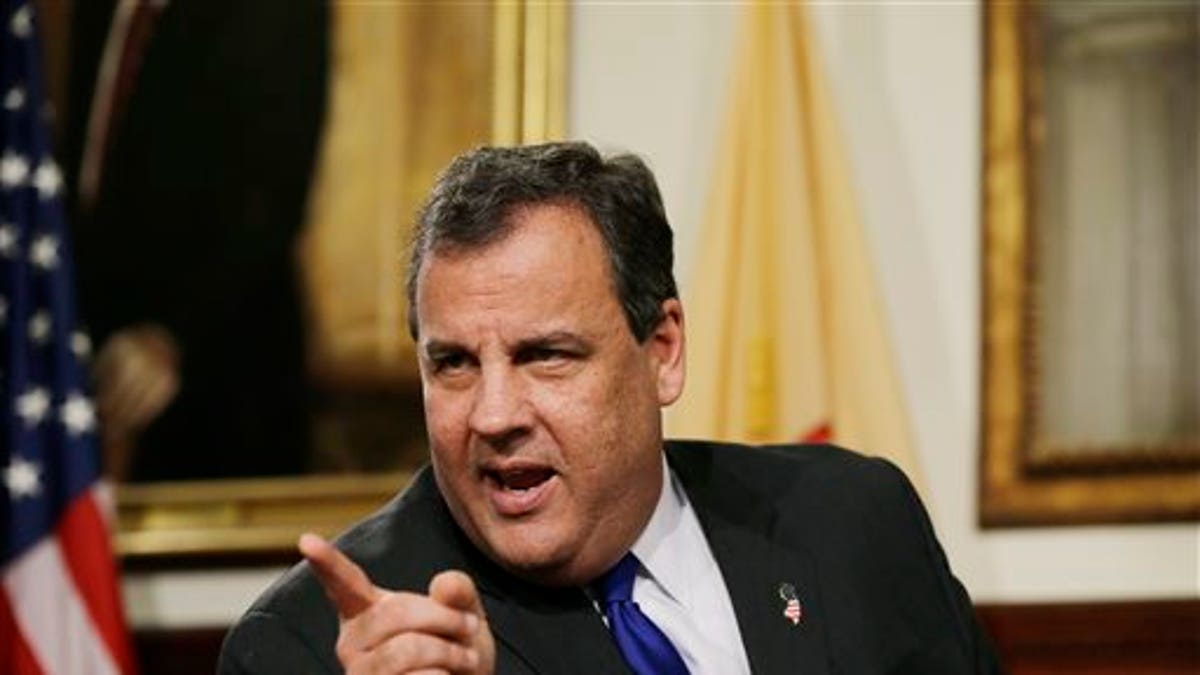
New Jersey Gov. Chris Christie (AP)
No one should be surprised at the notion that New Jersey Republican Governor Chris Christie and members of his administration would use political muscle to punish the mayor of Fort Lee, a Democrat, for deciding not to endorse him in the November gubernatorial election. It fits a pattern of public vindictiveness that has been a cornerstone of Christie's leadership style.
In this case, the Christie administration concocted some nonsense about the need for a traffic study to justify lane closings that left commuters in hours long traffic jams. The "Bridge-Gate" scandal reached comic proportions on Friday when documents were released indicating that a “traffic study” that was done to justify closing several lanes leading to the George Washington Bridge in early September — astoundingly concluding that lane closures cause traffic jams.
The governor has done a great deal to coarsen and debase the public discourse in his four years as bully-in-chief of the Garden State. He has styled himself as a new type of leader — one that supposedly tells you the truth you do not want to hear.
But does “bad news” need to be delivered with a sledge hammer? Does honesty need to be synonymous with cruelty?
Christie’s charm and way with words are amply on display for anyone willing to do a quick search on YouTube.
His "special moments" include calling a former Navy Seal “an idiot” several years ago for disagreeing and interrupting him about a higher education merger during a town hall meeting. The veteran was forceful in his advocacy, for sure, but the governor did not just stand up to him; he insulted the man and, for good measurem had him escorted out of the meeting by New Jersey State Police officers.
Then there are the regular tongue-lashings he has delivered to public school teachers for questioning his educational policies. One of them dared to roll her eyes and smile as he addressed her and the governor felt it was necessary to warn her that she would be dismissed if she did not stop smirking.
Just days before the November election, he was photographed on his way to a campaign event, pointing a finger and scolding a teacher who questioned his policies too forcefully.
Let us not forget the time he called an African-American man a “boy” at a town hall meeting in Paterson or the time he called a reporter “stupid” and an “idiot” for asking a question not related to a topic he was discussing or the time he described members of the New Jersey Legislature as “animals” for the way they treated his Supreme Court nominees.
All of these things Governor Christie did in the public eye, so why would we expect greater restraint in private?
As a former congressional staffer, I have two observations about these fits of anger and incivility. They send a message to staffers and subordinates about what is permissible. They are the foundation upon which a deputy chief of staff can justify to herself creating traffic problems in Fort Lee because the mayor there did not march in political lockstep with the governor.
Secondly, it is inconceivable to me that a trio of his subordinates and close advisers would undertake such an aggressive action without his approval.
On a policy level, Gov. Christie has been equally dismissive of the needs of the working poor. He has never met a millionaire he did not want to hug or a poor person he did not want to humiliate. He started his administration by removing legal residents from FamilyCare and by cutting the budget of an agency serving Hispanic non-profit corporations by 75 percent.
Recently, the Latino Action Network, of which I'm president, was critical of the distribution of Superstorm Sandy relief funds and of Christie's recovery plan, which slights renters and the working poor. At a recent meeting on the recovery efforts, a Christie administration official made it clear that debate was not an option. The LAN representative — we receive no state funding — was the only person to challenge the official. The others present, many who do receive state funding, quietly admitted they were afraid to challenge or question the administration. This was just another example of Christie’s overpowering tactics in dealing with questions from constituents and critics.
New Jersey has had its fair share of small-minded, corrupt politicians, but Gov. Christie told us he was different. He was going to tell us what we did not want to hear but it was all for our collective good. The scandal involving the created traffic jams at the George Washington Bridge shows us what it was really all about — the self-promotion of Chris Christie.
Civility, the feelings of the citizenry, and some commuters, who may or may not have voted for his gubernatorial opponent, are a small price to pay to create the public persona of the would-be president who just tells it like it is, no matter how much it hurts everyone else.
The main positive outcome of this scandal is that it provides an opportunity to see clearly what the Christie magic is all about and to decide whether this is the type of incivility we want to foist on the entire nation
